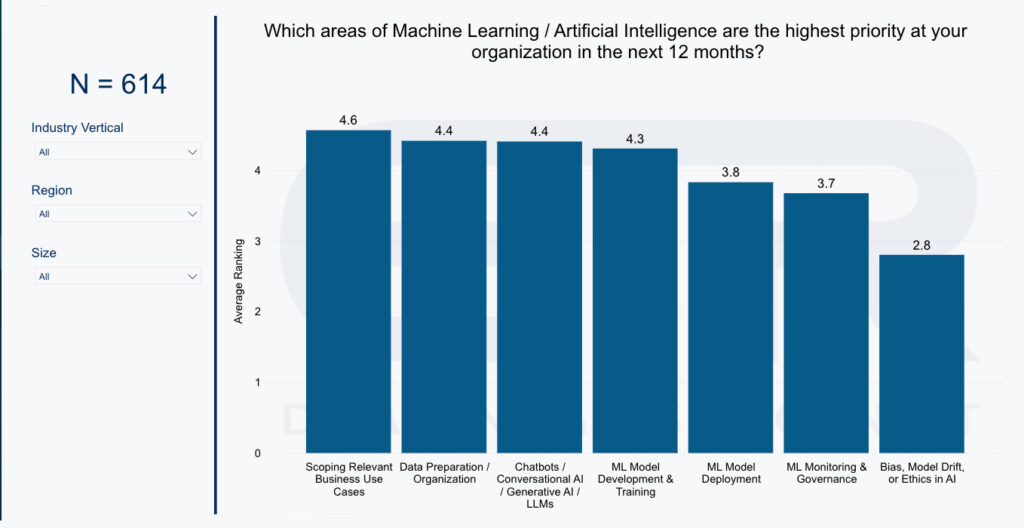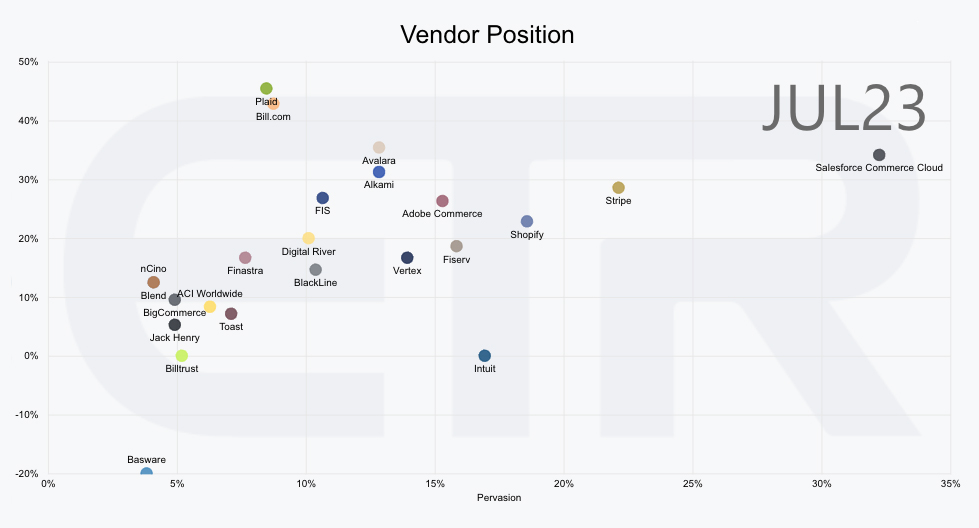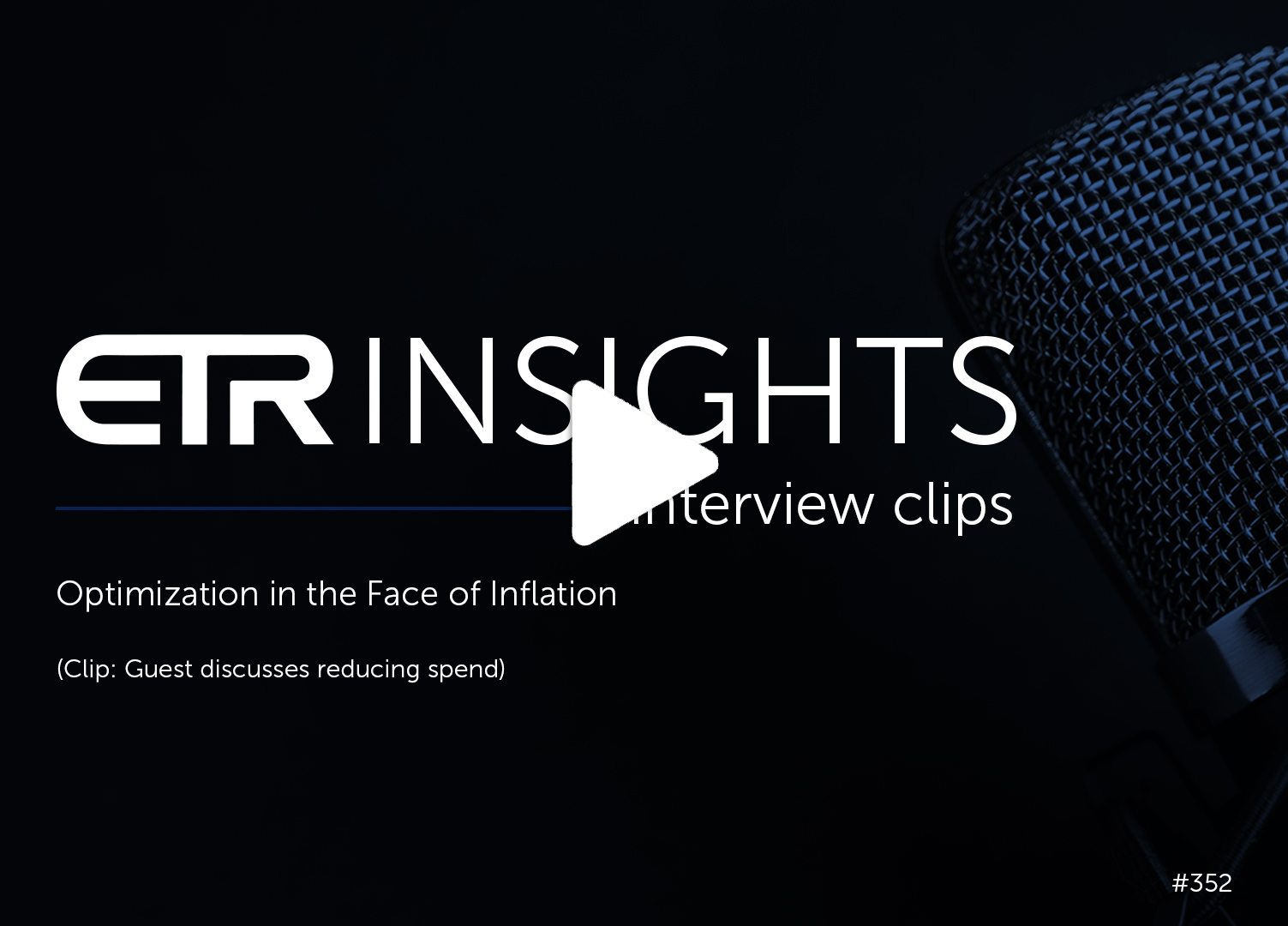ETR Insights presents an interview with a Director of IT for a large energy enterprise, who sheds light on the company’s tech spending strategies and priorities. The executive emphasizes a drive towards consolidating vendors and optimizing their tech investments to cut costs, with particular focus on cybersecurity. The company prefers comprehensive, “best-of-suite” vendors like Microsoft, who provide a broad range of services at competitive prices. The company is turning its attention towards use cases for robotic process automation, machine learning, artificial intelligence, and data warehousing; read on to learn why our guest favors Microsoft Power BI, Power Apps, and Power Automate for business information and analytics, and Monday.com for everyday project management.
Vendors Mentioned: Adobe / Adobe Sign / Amazon (AWS) / Atlassian / Automation Anywhere / Avalara / Cisco / DocuSign / Fiserv / Google / Hyland / Kofax / Microsoft / Monday.com / OneSource / OpenAI / OpenText / Oracle / Teradata / UiPath / Vertex / Zoom
IT Spending Overview
Our guest is seeking to reduce spend and optimize their investments and aims to cut costs in the face of inflationary vendor pricing. Consolidating redundant vendors has been “tremendous,” while they consider carefully before onboarding any new service. “[We need to] stop paying for multiple technologies that overlap too much.” They are paying particular attention to security spend. “That’s the biggest area for us, eliminating the little pieces and parts that we’re spending separately, to get that overall cost down while providing better service.”
This executive often favors “best-of-suite” vendors over “best-of-breed.” Though some vendors may lead in certain areas, others provide comparable services across various sectors at a better cost. Microsoft is a case in point. “We were able to utilize something we already had with Microsoft [for single sign-on identity security] to eliminate a best- of-breed vendor completely and had considerable savings there.”
For our guest’s organization, the high costs of cyber insurance – driven by incidents like the Colonial Pipeline cyberattack – mean their spending on cybersecurity remains a priority. That said, having reached a “comfortable” cybersecurity threshold, the company is now focusing on maintenance, education to guard against issues like phishing attempts, and otherwise closing gaps rather than substantial increases in security spending.
Though they have undergone a cloud migration, this organization expects to remain a hybrid infrastructure for the next decade. “For us, our bigger priorities are going to be robotic process automation, machine learning, and artificial intelligence, and then analytics and data warehousing.”
AI/ML + Advanced Analytics. ETR data suggests that security, while still leading survey trends, is ceding ground to AI/ML and data analytics. As they guide their executive team and the rest of the organization towards a deeper understanding of AI/ML, our guest continues to scope out possible use cases. “Internally in IT, we’re using it for generative AI and things like that. We’ll eventually do modeling and so on, probably in the next year or year-and-a- half, but primarily I’m trying to work on that first category. Baby steps, for sure.” The company hopes to leverage AI for code generation, documentation, and content-writing, though AI-enabled chat has faltered on a lack of the right skills, resources, and internal buy-in. “Customer support is something that we delved into two years ago, and we backed out of it. We will be getting back into it at some point, I just don’t know when.”

ETR Data: In ETR’s July 2023 Macro Views report, IT decision makers noted “Scoping Relevant Business Use Cases” as current top priority within Machine Learning and Artificial Intelligence. In addition to questions in the Macro Views survey, ETR also recently published a drill down on generative AI, exploring use cases and budget allocation within the large enterprise landscape.
Vendor-Specific Commentary
Microsoft Consolidation. The company favors Microsoft Power BI and Power Apps and is beginning to explore Power Automate. “We’re joining all that together to hopefully create a more powerful union and process moving forward [to unify] our business information, analytics, and everything.” They tested Oracle, AWS, and Teradata, but ultimately decided against. “We never really utilized Google Cloud Platform [either]. We looked at it, and we have done some MongoDB, but we have moved solidly into the Microsoft area.” The company has similarly moved away from Cisco and Zoom, to focus on Microsoft Teams and Office.
OpenText + Hyland. Our guest affirms the surging interest and spending on AI/ML, with new entrants like OpenAI shaking up an industry formerly dominated by names like AWS, Google, and Databricks. Within RPA specifically, they point to OpenText and Hyland as leaders. “Their AI tends to be more towards image AI, an interpolation of images, converting to text, and so on. Robotic automation is probably one of the highest payback options that there is out there; because you can reduce staffing, frankly.”
Fintech. This organization is transitioning fully to Avalara for tax processes, away from Vertex and OneSource; the move to Avalara aligns with their planned upgrade to Oracle’s ERP. “Vertex is the preferred vendor for Oracle. However, Avalara seems to work far better and works extremely well, plus they have some other tie-ins to our other business side that makes sense.” They hope to consolidate operations across all five companies under their parent umbrella, shifting from a previously localized setup. “Then our Fiserv stands alone, so we will still be in Fiserv, which is a different product entirely.”

ETR Data: According to data from the July 2023 Technology Spending Intentions Survey (TSIS), Avalara has one of the highest Net Scores among vendors in the FinTech sector. Spending intentions for Avalara are in-line with Salesforce Commerce Cloud. Vertex and Fiserv fall in the middle of the pack, with Net Scores below 20%.
Productivity + Collaboration. This organization favors Monday.com for project management across all departments not involved in software development. Atlassian’s Jira is reserved for their software development cycle, though other Atlassian products like ServiceDesk are in use throughout the company.
As the company’s e-commerce and need for certified documents grows, so does their expenditure on DocuSign. “We’re currently looking at DocuSign, do we stay with it? Do we move to something less expensive? Unfortunately it seems like most of the spend out there is pretty similar to DocuSign. There’s not as much of a delta.”
